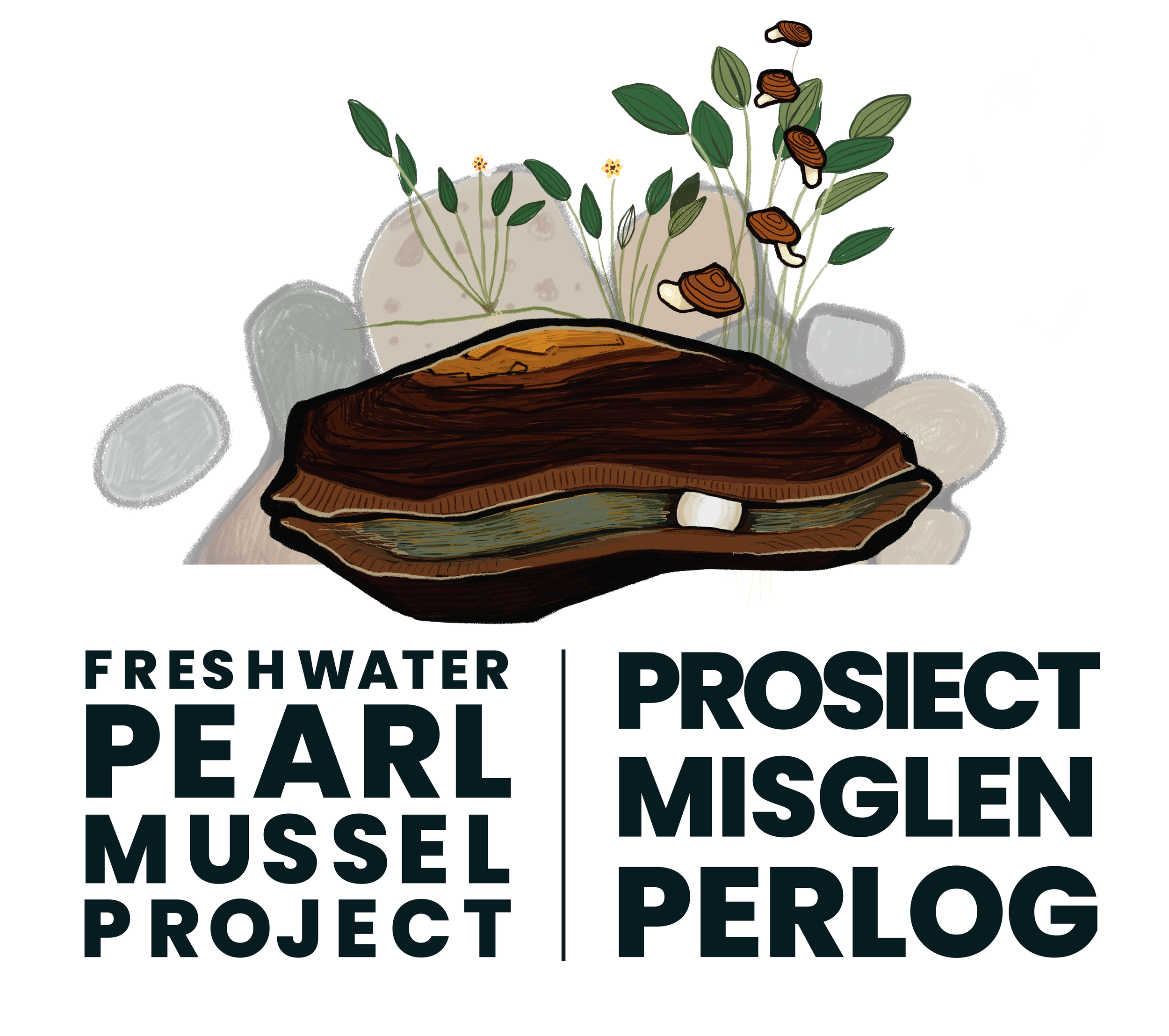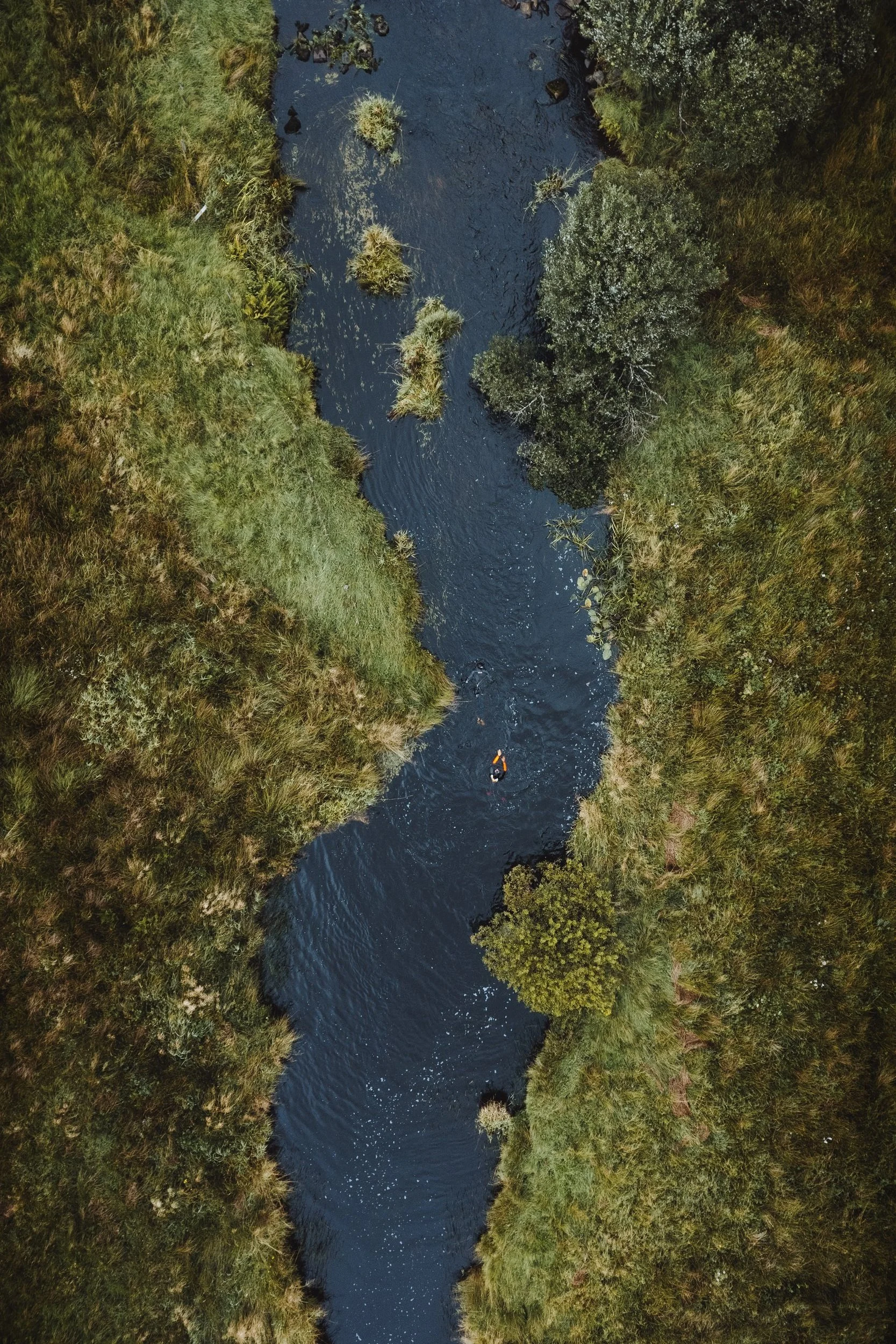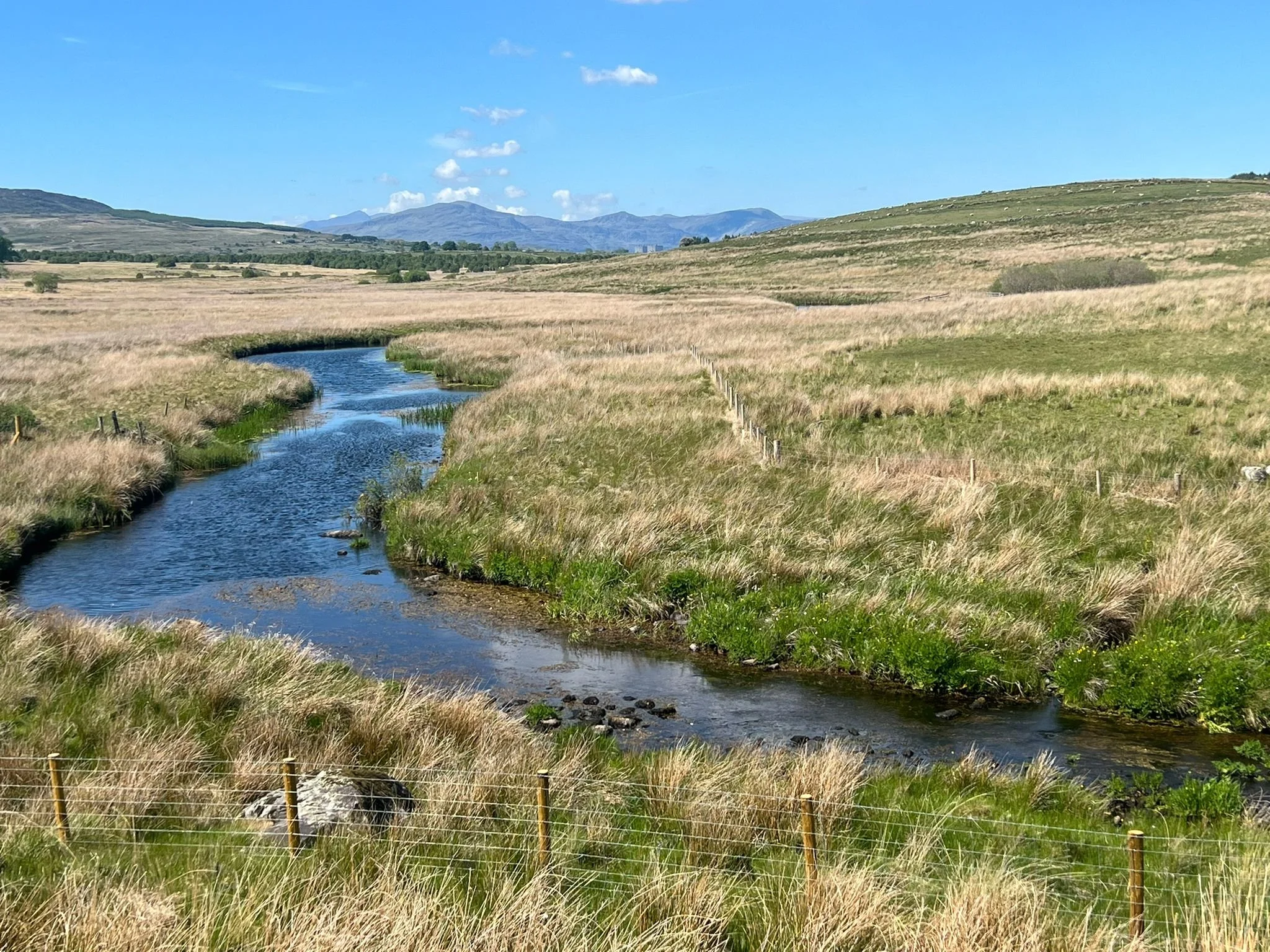
Freshwater pearl mussel project
This project is funded by Local Nature Partnerships in partnership with Parc Cenedlaethol Eryri and Welsh Government.
The Eden Revival
This project focuses on the recovery of one of Wales’ last remaining freshwater pearl mussel populations, found in the remote upper reaches of the Afon Eden. These rare and long-lived species are a vital part of the river’s ecosystem, but their future depends on clean, cool water and healthy fish populations.
In phase two of our restoration efforts, we are enhancing critical spawning habitat by adding gravels and boulders to support juvenile salmonids—the host species on which the mussels depend. Alongside this, we have fenced over 4km of river to keep out livestock, protecting the banks from erosion and nutrient loading.
To restore and rewild the catchment, we’ve created and rehabilitated wetland habitats, planted more than 1,500 native trees to cool the river, and safeguarded an acre of threatened acid grassland. We’ve also installed solar pumps to provide clean water for cattle away from the river and created new biodiversity ponds to support wider wildlife.
Crucially, we’ve carried out ground-truthing surveys to map and protect areas of deep peat, recognising their role in carbon storage and hydrological health.
Through this work, we aim not only to protect the freshwater pearl mussel but to revive an entire river system—ensuring that nature and farming can thrive side by side in one of the most ecologically sensitive catchments in the UK.
Learn more about freshwater pearl mussels and why they are so unique.
The Afon Eden, a Special Area of Conservation and Site of Special Scientific Interest, is home to one of the UK’s most endangered species, the freshwater pearl mussel (Margaritifera margaritifera). These mussels, are crucial for maintaining river health, filtering water and supporting biodiversity. However, their populations have dramatically declined due to habitat loss, pollution, and changes in river flow. The mussels’ survival is tightly linked to salmon and trout populations, another declining species. Work is taking place to restore habitat and create a thriving Afon Eden.
protecting our endangered species
Over the years the Afon Eden has faced several issues that threaten its ecological health and the habitat of the freshwater pearl mussel.
Habitat and Spawning Ground Loss: There is a shortage of suitable habitats and clean, gravel-rich spawning grounds for species like salmon, otters, and freshwater pearl mussels. Land use changes and environmental degradation further reduce these critical areas, hindering wildlife reproduction and survival.
Climate Change: The river is increasingly impacted by droughts and flooding, which disrupt natural flows and degrade habitats, affecting species that rely on stable river conditions.
Livestock Issues: Livestock accessing the river causes poaching and water quality issues, leading to erosion and nutrient pollution.
Sewage Pollution: Untreated or poorly treated sewage entering the river contributes to nutrient enrichment, degrading water quality and further harming sensitive species and habitats.
Invasive Species: Invasive plants like pondweed outcompete native species, disrupting the river's ecological balance and affecting biodiversity.
Sedimentation: High sediment runoff from agricultural ditches and erosion reduces water quality and smothers vital habitats.
Riparian Buffer Zones: The absence of riparian buffer zones allowed pollutants, including sewage and agricultural runoff, to enter the river more easily, exacerbating water quality issues and habitat loss.
issues facing freshwater pearl mussels
community
The success of our freshwater pearl mussel conservation project was made possible through the active involvement of the community. Local residents, educators, and students played a vital role in restoring habitats, monitoring water quality, and gathering data on wildlife. Throughout the project, we passed on traditional heritage skills such as dry stone walling, built otter holts to support riverside wildlife, and encouraged hands-on learning that deepened connections to the local environment. Thanks to this collaborative approach, the community not only helped protect this endangered species but also became champions of their river’s long-term health.
education
As part of this project, the North Wales Rivers Trust worked closely with local schools to deliver educational workshops and site visits focused on the critically endangered freshwater pearl mussel and the importance of protecting our freshwater ecosystems.
We collaborated with a local school to help students learn about the life cycle of the freshwater pearl mussel through the creation of a storybook. This engaging project deepened their understanding of this endangered species, encouraged creative thinking, and strengthened their connection to the local environment. The storybook has now been published and is available to purchase.
In addition to the storybook, pupils also had the chance to take part in site visits, where they built bug houses and took part in invertebrate sampling activities.
Through these initiatives, we empowered the next generation to play an active role in protecting their local waterways and the rich biodiversity they support.
Dive into the heart of Eryri with Mabon the salmon and Mabli the otter as they uncover the hidden wonders of their river home. Meeting Mair, the wise freshwater pearl mussel, they learn of her vital role in keeping the waters clean and the ecosystem thriving.
Through playful rhymes and vibrant illustrations, this tale celebrates friendship, discovery, and the unseen heroes of our natural world. Inspiring young readers to cherish and protect the environment.
MABLI, MABON & THE FRESHWATER PEARL MUSSEL | THE SECRET LIFE OF ERYRI SERIES



river restoration
Improving Habitat
Over the two-year period we have introduced 200 tonnes of gravel and 100 tonnes of boulders into the river to improve habitat for fish. Excitingly, we have already seen juvenile salmon and sea trout in the area and our electro fishing surveys showed eels present too!
Connecting Corridors
Over 4KM of habitat has been connected and livestock fenced from the river to protect the Freshwater Pearl Mussels and improve overall river health. Old gates and styles have been replaced, improving access for all. Solar troughs have been installed to keep livestock from the river.















